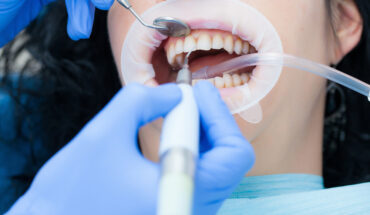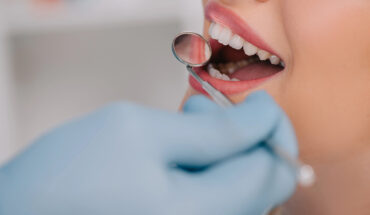
Since ancient times, people have debated dental hygiene and the best ways to keep teeth healthy. There are many different practices and beliefs surrounding this topic. Flossing is one such habit that has become ingrained in our dental hygiene regimen. Health experts and dentists have praised flossing for years, saying it is necessary for maintaining good oral health. The prevalent understanding is being questioned by new research and changing viewpoints, which raises the possibility that flossing is not really necessary. In this article, we’ll explore the arguments against the necessity of flossing and examine whether this long-standing dental practice is truly indispensable.
In the early 1800s, flossing received widespread recognition as an essential part of maintaining good tooth health. The goal of flossing is to remove food particles and plaque from areas between teeth and along the gum line that may not be properly cleaned by toothbrushes. Dental practitioners have long advised flossing, highlighting its importance in preserving general oral health and as a preventive step against cavities and gum disease.
The Controversial Studies
Although flossing has been recommended for a long time, some new research has questioned its need and questioned its effectiveness. An investigative article by the Associated Press in 2016 suggested that there was insufficient and conflicting scientific evidence to promote flossing. The study asserted that thorough clinical trials had not been conducted to demonstrate the efficacy of flossing in preventing cavities and gum disease.
Furthermore, a 2019 Cochrane comprehensive review found that the idea that flossing lowers the rate of cavities and gum disease isn’t well-supported by the available data. The study came to the conclusion that there was little information to make strong judgments about the advantages of flossing because of the often low quality of the data.
As for individual dentists, what dentists say privately isn’t always what they publicise and this applies to more controversial dental practices such as use of fluoride and beyond. It’s worth asking your dentist in person how they feel about flossing and other dental subjects – getting to know your dentist is a great by-product of their expensive treatments.
Understanding the Limits of Flossing
Proponents of flossing argue that its benefits lie in removing debris and bacteria from areas that toothbrushes cannot reach. While this may be true to some extent, critics point out that flossing must be done correctly and consistently to be effective. Many people may not floss properly or regularly, diminishing its potential benefits.
Additionally, the type of floss used can impact its effectiveness. Some individuals may find traditional string floss difficult to use or uncomfortable, leading to inconsistent use. The market offers alternative options such as floss picks and interdental brushes, but their efficacy varies, and they may not be suitable for everyone.
The Role of Oral Health Habits
Although flossing is an essential part of maintaining dental health, its effectiveness should also be assessed in relation to a person’s total oral hygiene plan. Strong gums and teeth are helped by adopting important oral hygiene practices such as using mouthwash with antibacterial qualities, toothpaste with fluoride, and a balanced diet.
It is imperative to acknowledge that certain individuals may possess distinct dental requirements, and a universal approach may not be appropriate. Consultations with oral health specialists and routine dental examinations can assist customize recommendations to meet the unique needs of each patient.
Alternatives to Traditional Flossing
For those who find traditional flossing challenging or uncomfortable, alternative methods of interdental cleaning may be explored. Water flossers, for instance, use a stream of water to remove debris between teeth and along the gumline. While research on their effectiveness is ongoing, some individuals may find water flossers more user-friendly and, therefore, more likely to be used consistently. It’s also true that if you’re used to having no teeth at all then you won’t be worrying about flossing, ever.
If You Love Flossing, It’s Okay To Still Do It
To sum up, the proverb that goes, “It’s no loss if you don’t floss,” is not as absurd as it would sound. Although flossing has historically been associated with maintaining the best possible oral health, new research and changing viewpoints indicate that this may not be the case. The key lies in adopting a comprehensive approach to oral care, considering individual needs, habits, and preferences. The objective is still the same whether flossing is adopted or alternative techniques are investigated: enhancing general oral health and averting dental problems. In the end, the choice of whether or not to floss should be well-informed and influenced by a range of factors, including expert advice, personal experience, and scientific data.




